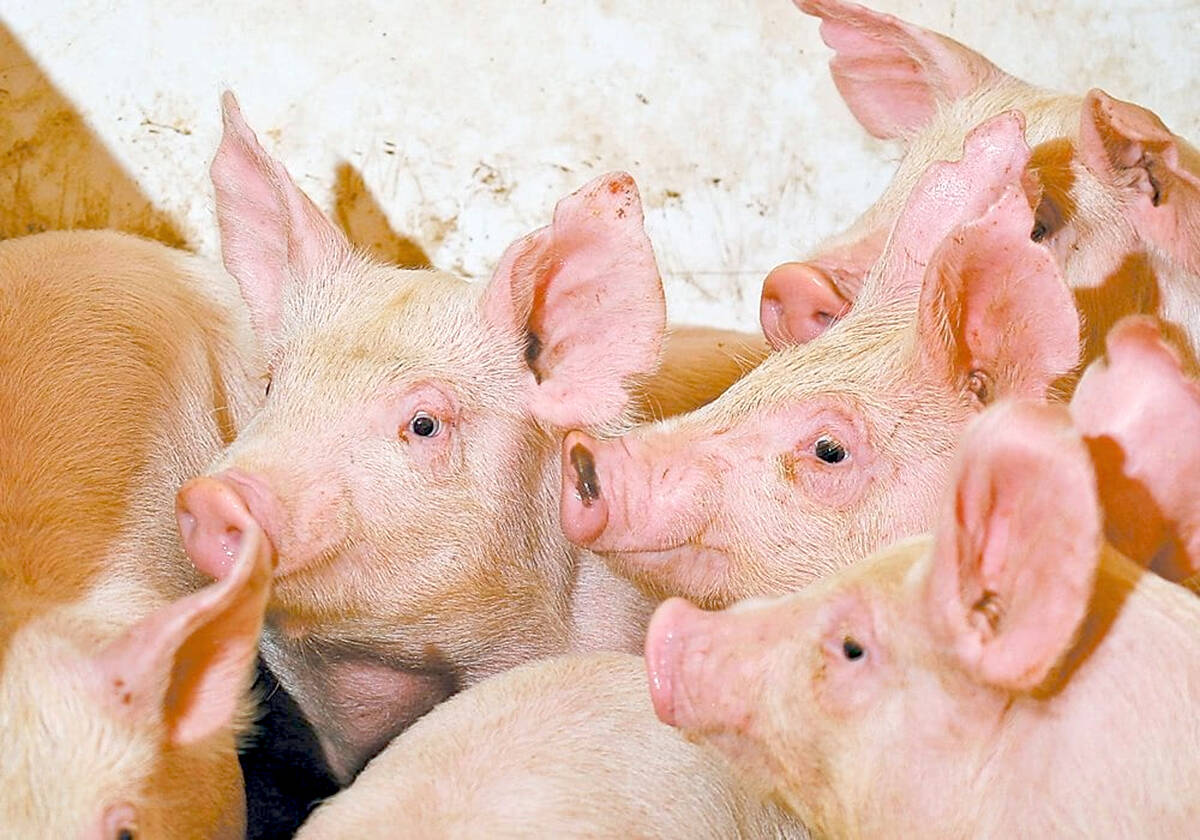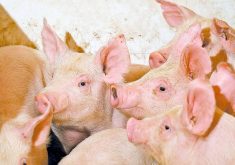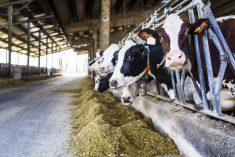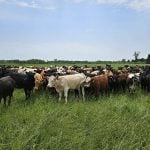Rosselkhoznadzor, Russia’s federal animal and plant health service, has expanded its ban on imports of hogs and pork from Ontario to include all meat from the province, the Reuters news agency reported Tuesday.
Reuters says Rosselkhoznadzor imposed the new ban “for fear of the H1N1 flu virus,” although no cases of H1N1 have yet been found in hogs in Ontario, nor in any Canadian province other than Alberta.
H1N1, a novel strain of human influenza believed to have formed from human, avian and swine strains of flu, is confirmed to have affected 496 people in Canada as of last Friday, including one woman in Alberta who died late last month but whose cause of death has been ruled inconclusive.
Read Also

U.S. livestock: Cattle prices down, hogs rise again
Live and cattle futures on the Chicago Mercantile Exchange retreated for a second session, while lean hogs extended their rally….
The disease also entered one herd of over 2,000 hogs in Alberta’s Clearwater County; the herd has since been quarantined and, for animal welfare reasons, partly culled. H1N1 is presumed to have jumped to the herd from a carpenter who had visited Mexico before coming to work at the animals’ home farm.
All that said, H1N1 is not considered to be a food safety issue. In the event that it jumps to a hog herd, as it did in Alberta, “the virus will be entirely contained in the lungs of the pig,” according to Dr. Cate Dewey, a professor in swine health and epidemiology at Guelph’s Ontario Veterinary College.
“The influenza virus never goes into the blood of the pig and it never goes into the muscle of the pig,” Dewey said in a Canadian Pork Council statement last week. “So pork is perfectly safe.”
Ontario is home to 187 of Canada’s 496 human cases of H1N1, followed by British Columbia at 100, Alberta at 67, Nova Scotia at 66 and Quebec at 47. Newfoundland and Labrador, Nunavut and the Northwest Territories have yet to report any human cases, according to the federal Public Health Agency (PHAC).
As of Tuesday morning, the World Health Organization (WHO) reports 9,830 lab-confirmed cases of H1N1 in 40 countries, primarily in the U.S. (5,123 cases, including five deaths) and Mexico (3,648 cases, including 72 deaths).
PHAC said it continues to track both the U.S. and Mexican outbreaks, but on Friday noted that the risk of contracting the virus in Mexico has recently decreased to the point where Canada’s foreign affairs department has lifted its advisory against non-essential travel to Mexico.
In the U.S., PHAC noted, “nearly all” of the reported cases of H1N1 are mild.
According to Reuters, Rosselkhoznadzor’s H1N1-related ban on meat imports to Russia also applies to all meat from Mexico and various states in the Caribbean and Central America, as well as seven U.S. states: Wisconsin, Washington, Illinois, New York, Texas, California and Arizona.
Among Canadian provinces, Rosselkhoznadzor’s bans on imports of live pigs and raw pork apply to product from Alberta, B.C. and Nova Scotia.
The same bans are in place on live hogs and raw pork from Michigan and Massachusetts, the Spanish provinces of Barcelona, Seville and Valencia, and all of Britain.














